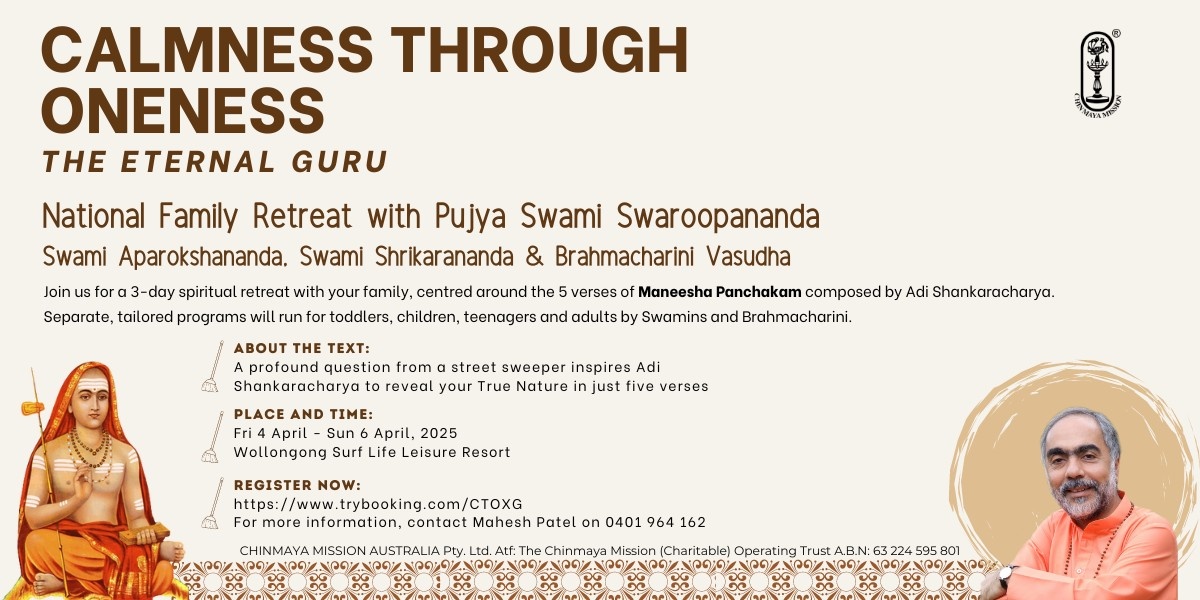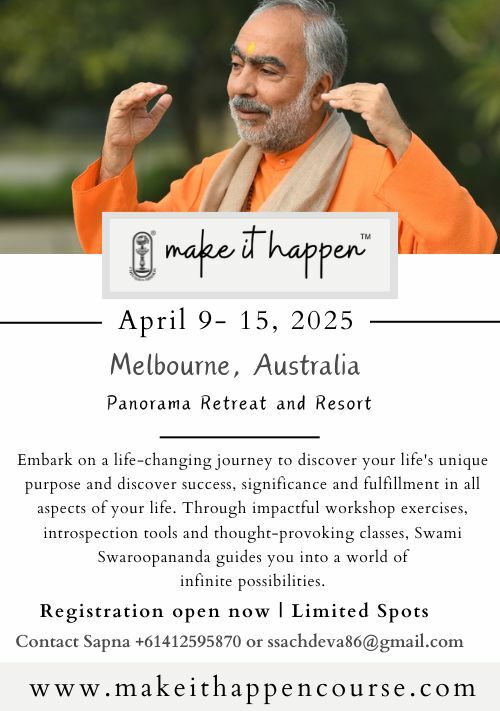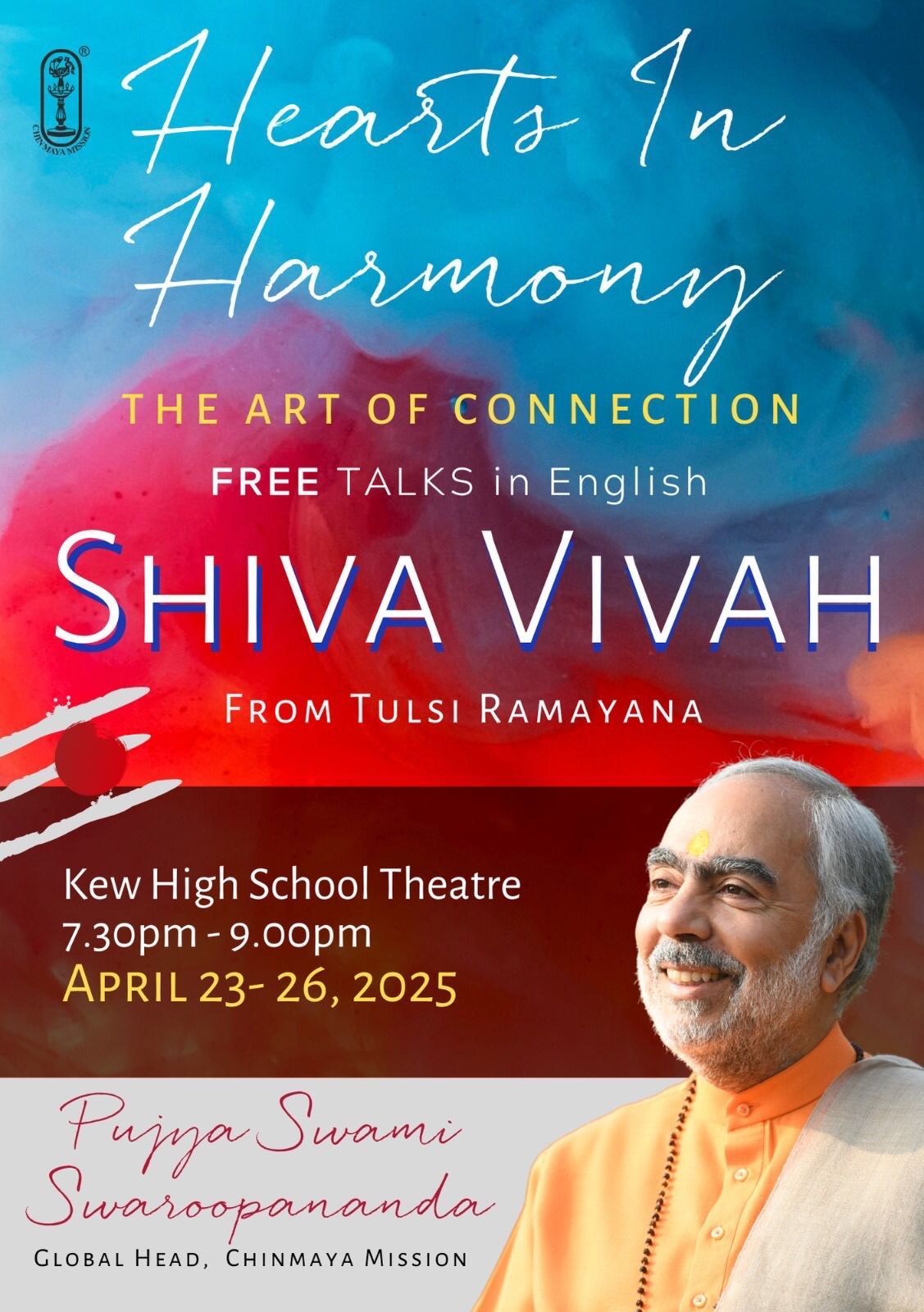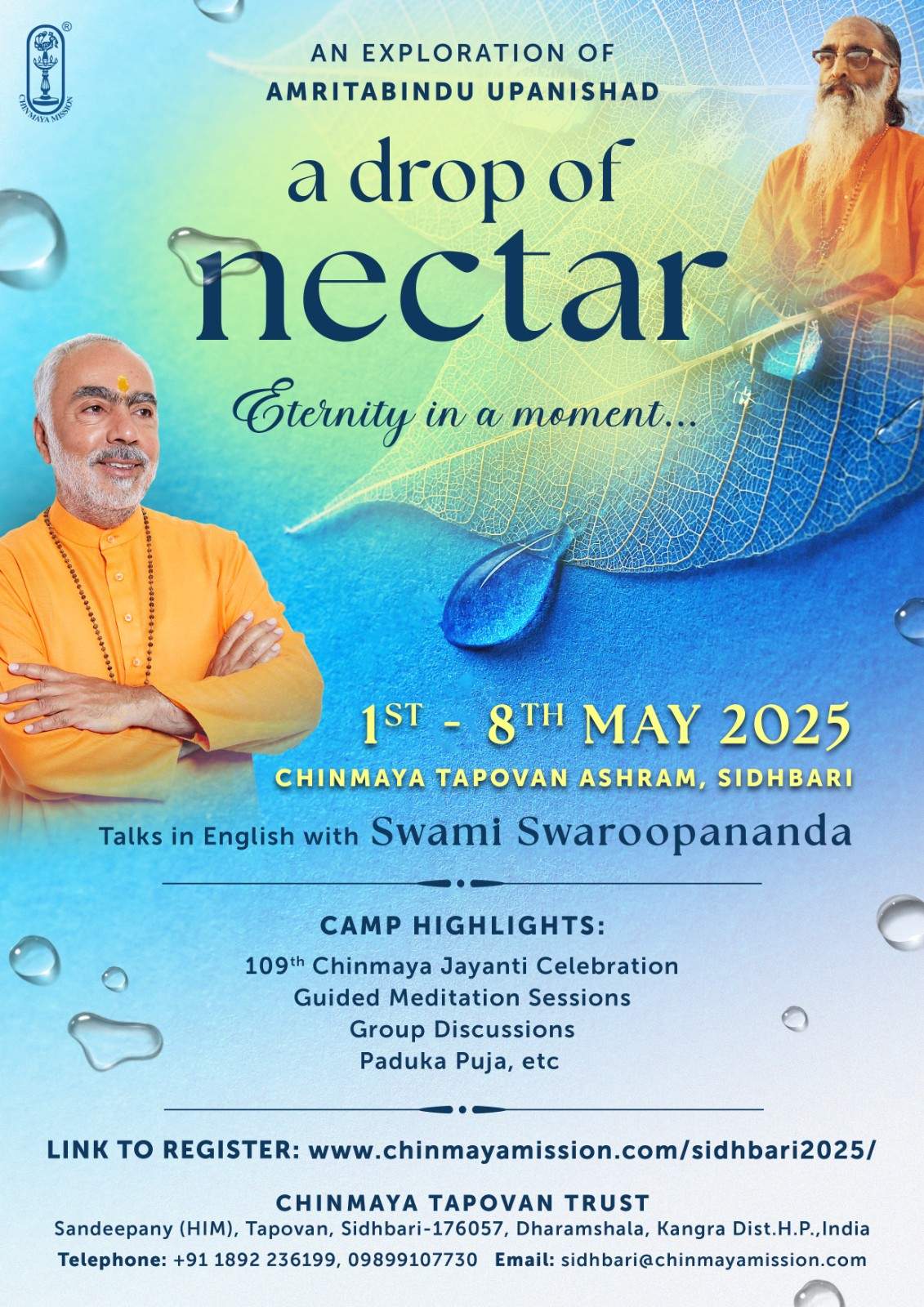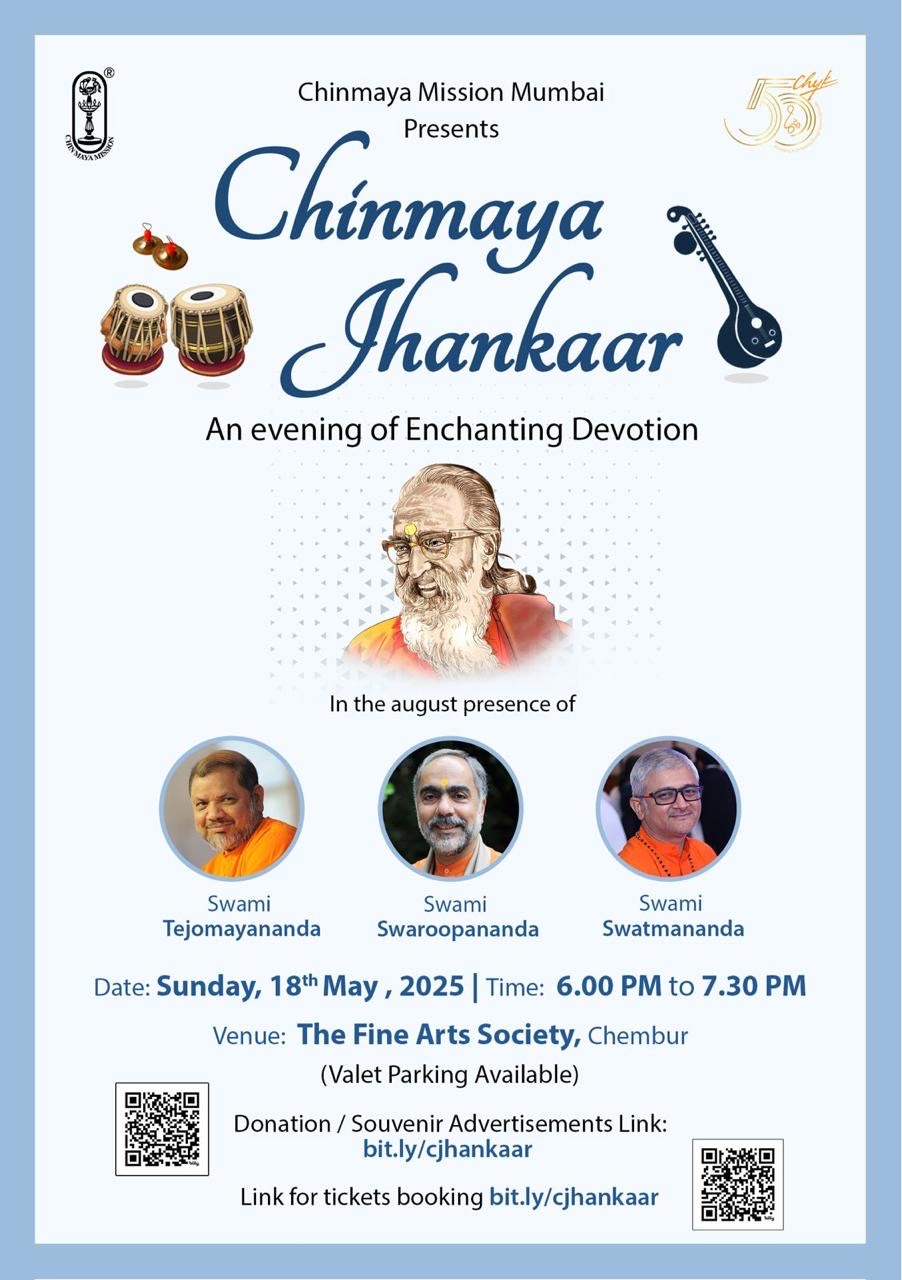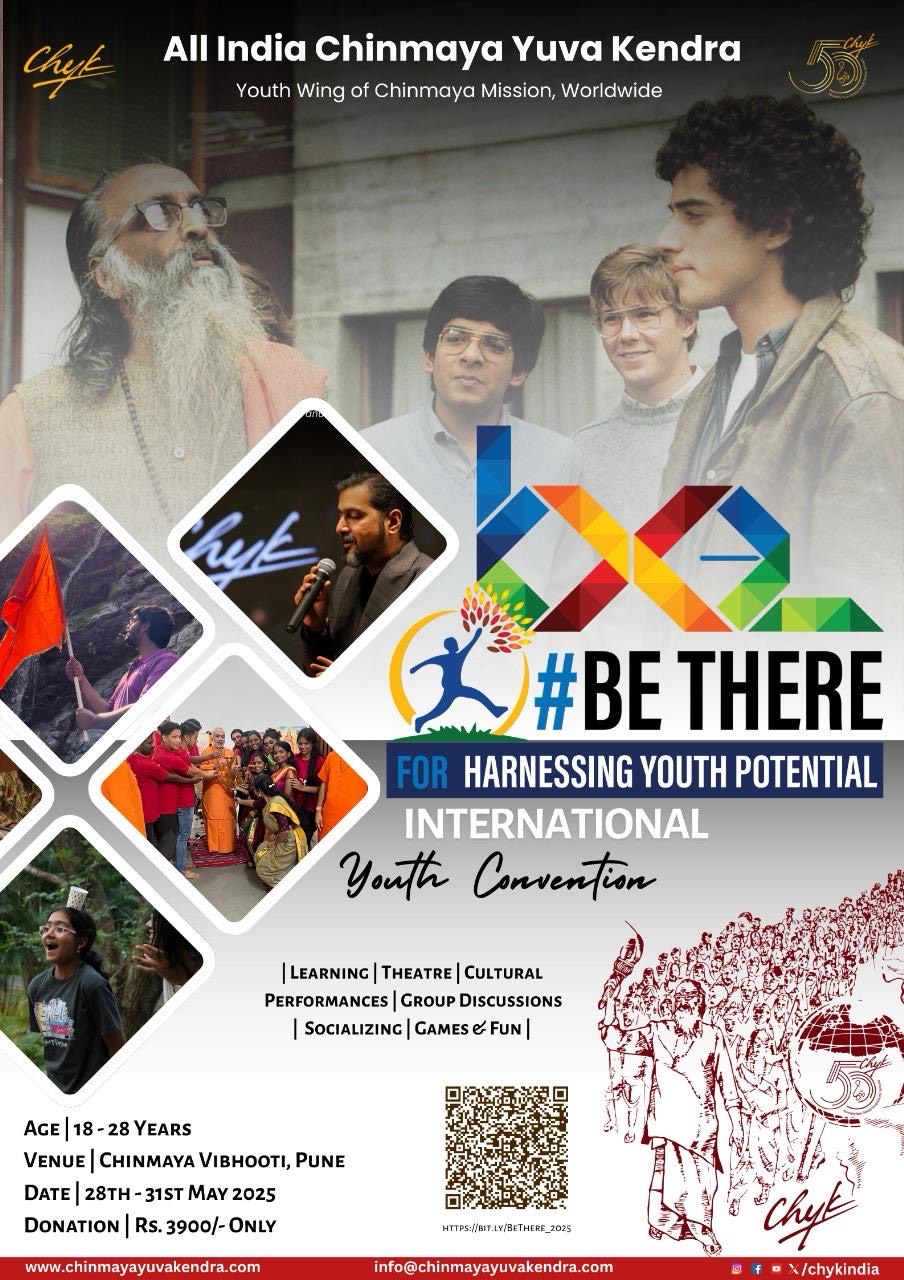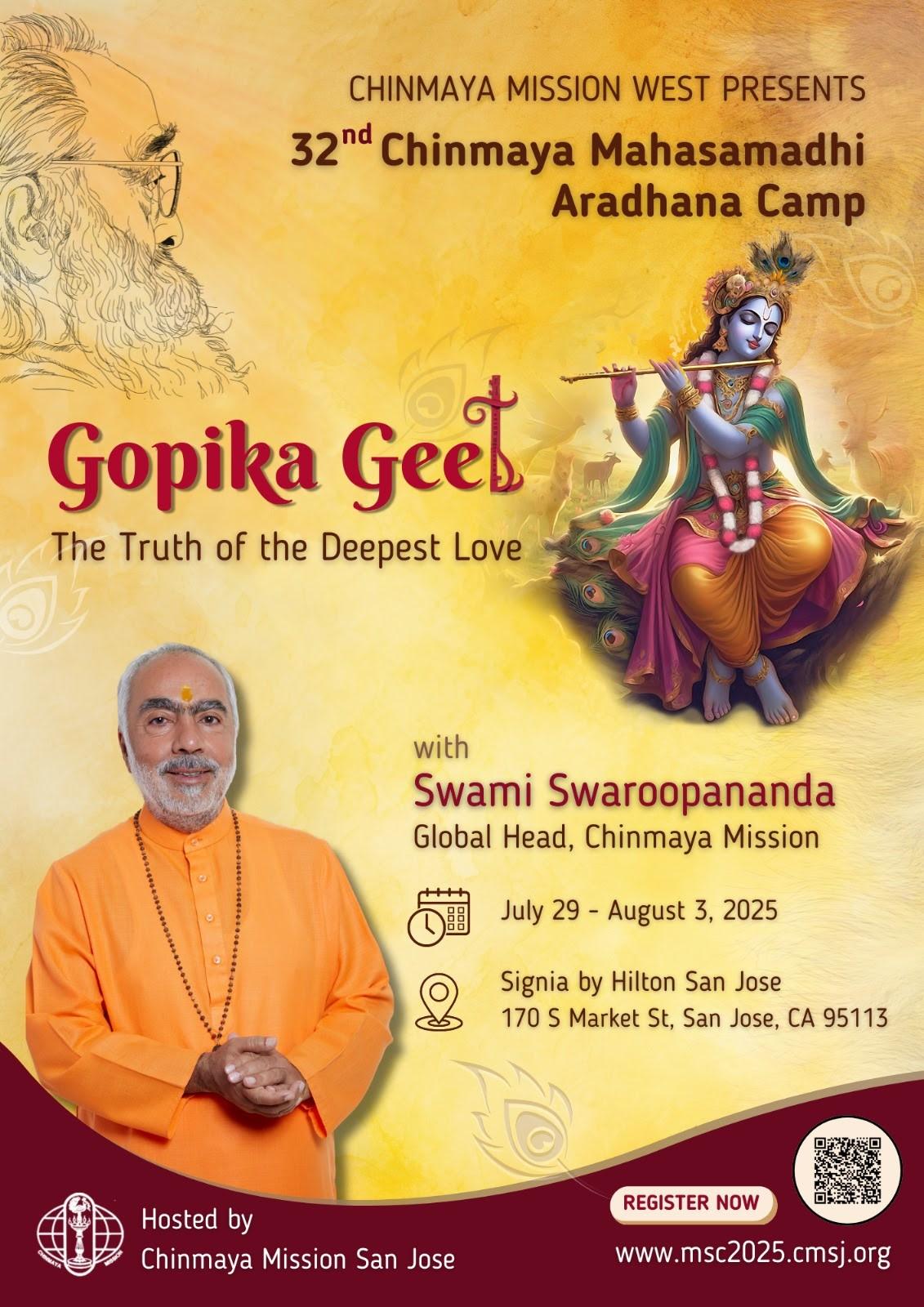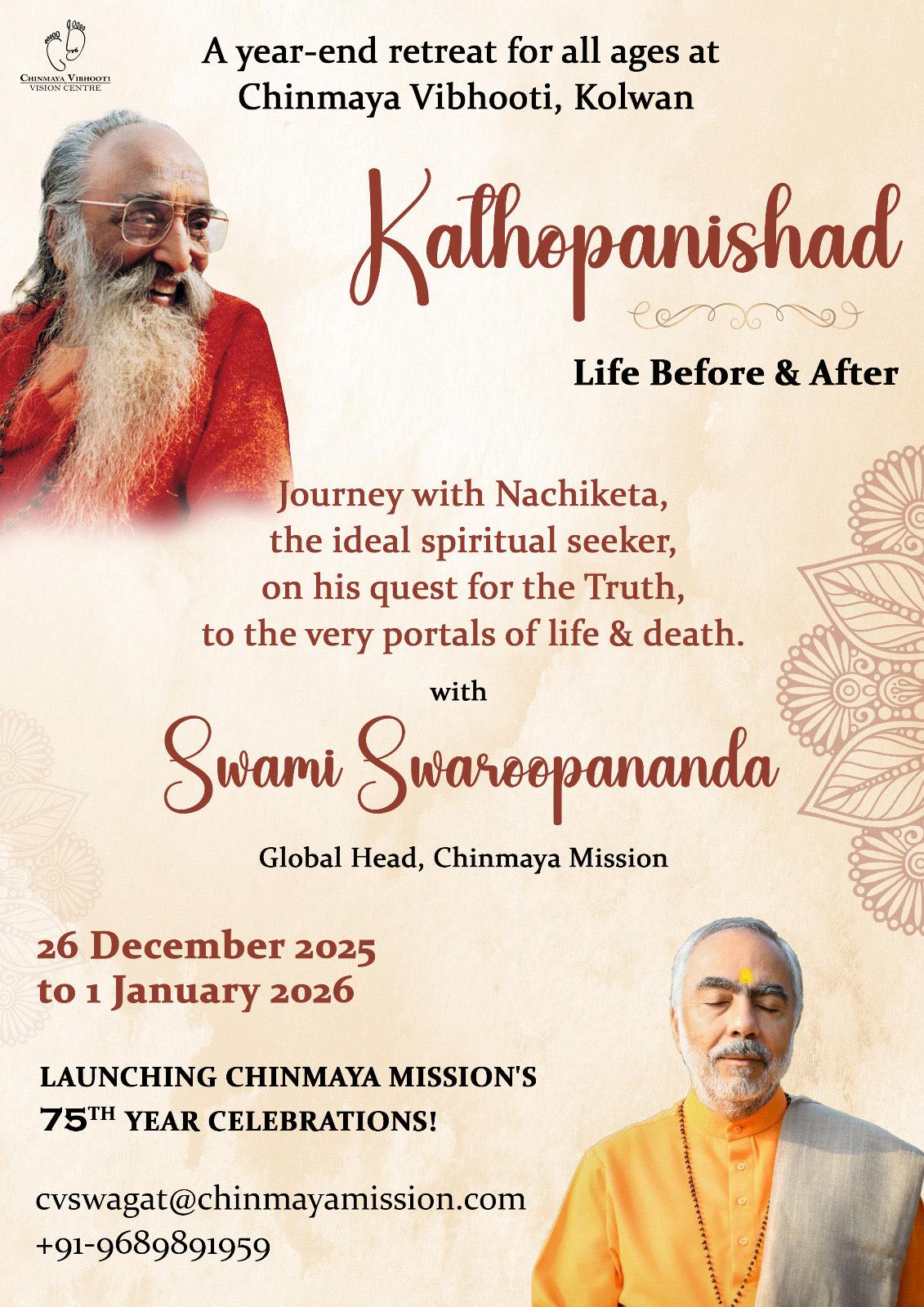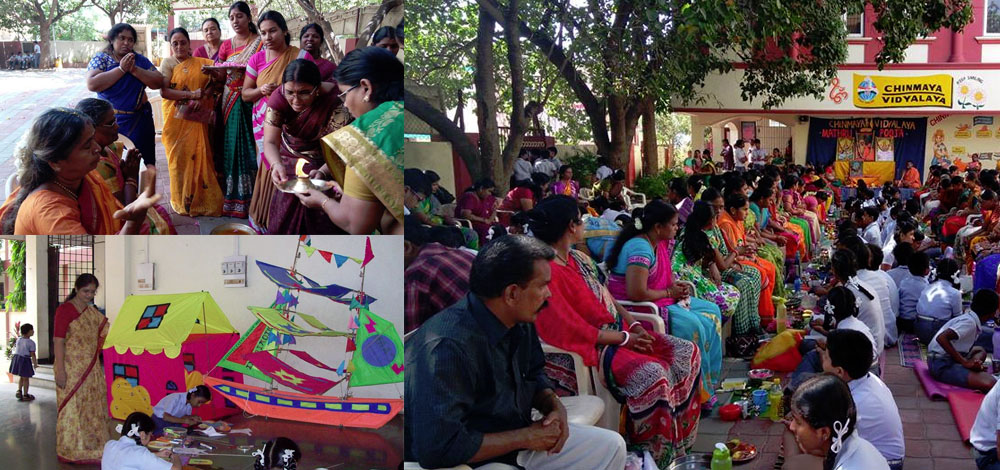

CVP



In all worthwhile undertakings, there will be risks of failure, of disappointments, of even disaster. To face them all with inner poise and firm faith is to discover the glory of final victory. A conquest, without facing dangers, is as dull as victory without a shining glory. A game without a prize!
- Swami Chinmayananda
"A narrow vision is divisive, a broad vision is expansive, and a holistic vision is all-inclusive." - Swami Tejomayananda
As the vision, so the world appears to us (yatha drishti tatha srishti). If one’s vision is narrow and disturbed, the world seems filled with strife. But, if it is broad and love-filled, then the world seems expansive and joy-filled.
The Chinmaya Vision Programme (CVP), formally developed in 1996, is based entirely on Swami Chinmayananda’s thoughts and advice. It is a holistic vision to see life and the world as a whole. It is a comprehensive education programme that integrates the best of Indian culture and Vedantic philosophy with academic learning. CVP aims to nurture all Chinmaya students to be successful and humanitarian world citizens, to adopt a holistic vision that allows them to face life and its challenges positively and dynamically, and generously give back to society in myriad ways.
Since its inception, CVP has raised the professional calibre and personal value of the Chinmaya institutions, making them noteworthy academic and spiritual forums of the modern day. While the child is the focal point, CVP also takes into account and methodically addresses the vital roles of school management, teachers and parents.
CVP focuses on four main topics for child development: Integrated Development, Indian Culture, Patriotism and Universal Outlook.
Integrated Development
Integrated development aims at the overall unfoldment and gentle blossoming of the student at all levels of the personality, so that he or she becomes physically fit and well-groomed, emotionally balanced, intellectually alert and creative and spiritually awakened. It comprises:
Physical Development: The goal of physical development is good health and proper growth of children. It involves physical fitness, nutrition, hygiene, personal grooming, health education, health assessment, and prevention and treatment of diseases.
CVP in Action — A student of Chinmaya Vidyalaya Tarapur went around his housing colony as part of his hygiene project, politely returning to the owner all the litter he found outside each home. The Secretary of the housing colony in a letter of appreciation wrote to the Principal, “Your student achieved what several notices could not.”
Mental Development: This aims at making the student emotionally balanced. It includes emotional expansion, handling emotions, handling relationships, gender-specific education, mental health assessment and counseling. Children are taught to experience the joy of selfless actions, sharing and caring. This makes them trusting, sensitive, accommodative and kind.
CVP in Action - Students of Chinmaya Vidyalaya Kannamally experienced the joy of sacrifice and service by saving and collecting money to purchase medicines for an Adivasi (tribal) village near Vyanad.
Intellectual Development: The purpose of intellectual development is to kindle its infinite potential, explore its reach and depth and guide its direction. It includes intellectual kindling, independent and scientific thinking, management skills, aesthetics, intellectual assessment and guidance.
CVP in Action - Student council members of CVs in Coimbatore were trained by professionals in leadership qualities, understanding roles and responsibilities, and problem-solving techniques. This gave them greater confidence in performing their duties as school leaders.
Spiritual Development: Spiritual development aims at enabling students to evolve in a wholesome and holistic way, manifesting their nobility and divinity. It includes value education, spiritual assessment and guidance, philosophy, spiritual techniques such as prayer, meditation, chanting and yoga.CVP in Action - Grade VII students of Chinmaya Vidyalaya Bengaluru were asked to keep a record of their own good and wrong deeds. The teachers were pleasantly surprised to find a visible improvement in their behaviour within a month of their daily record-keeping. Maintaining a spiritual diary has helped many Vidyalaya students assess themselves and change over the years. Indian Culture
The student is given wide exposure to various aspects of Indian culture. The teacher creates a cultural awareness and an appreciation of the vast literary, scientific, and artistic heritage of India. Through epics or stories, values such as love and non-violence are embedded in children’s minds and remain with them throughout their lives.
The first step in becoming cultured is to become aware — to get exposed to the richness of one’s culture. In this aspect of CVP, children are exposed to festivals, customs, rituals, chanting and symbolism. Swami Chinmayananda did not miss a single opportunity to make people aware of our culture. He once asked the teachers of Chinmaya Vidyalaya Delhi, whether they knew why they put the red dot on their forehead. “It is the seat of wisdom. If you understand its significance and place it there with the right attitude and intention, your third eye really opens up!” he explained.
"Never can a child’s education be complete unless we impart to them a true appreciation of the eternal values of life and also help them to open up their sense of beauty, rhythm, ethics, and aesthetics. We must give them a chance to discover and develop their talents and express them through music, dance, painting, and so forth." -Swami Chinmayananda
Patriotism
Patriotism is love for and pride in one’s motherland. It is a deep-seated emotion that enables one to put one’s motherland before oneself and one’s family. This vital area of focus includes education in citizenship, civic consciousness, national and cultural pride and addressing national issues. The goal is to develop dedicated citizens who honour and take pride in serving their motherland.
In this aspect of CVP, students develop a sense of pride in their country and are also made aware of its weaknesses. This inspires the youth to tackle the injustices and evils of society. Each student is rooted in the conviction that he or she is an Indian first and foremost, irrespective of differences of caste, community, religion, state, or race.
Students of Chinmaya Vidyalaya Delhi organized an exhibition on ‘Discover India.’ Weekly and monthly quizzes on ‘Incredible India’ and ‘Vision 2020’ are also conducted by Chinmaya Vidyalaya, Delhi, Chinmaya International Residential School Coimbatore and other schools inculcating patriotism.
Universal Outlook
"This life of harmony with a wider view of the cosmos brings to our heart an inward peace and poise. When this universal vision is maintained within us, problems vanish like mist before the rising sun." - Swami Chinmayananda
A universal outlook is the appreciation, sensitivity and commitment to universal issues. A universal outlook helps students see themselves as responsible citizens of the world, live in harmony with creation and elevate their relationship with God as a universal force. CVP looks at the universal outlook from an economic, technological, philosophical, and cultural angle. Students discover the unity and relationship between the universe, man and God and begin to wonder at the beauty and vastness of creation.
From its inception in 1996, CVP was rolled out to Chinmaya Education Institutions (CEIs) across India in four phases. First, the principal, the management, and a couple of senior teachers were introduced to the program. It was followed by an orientation session for the entire staff. Later parents were involved and finally students, too, became active participants in the programme. Swamini Vimalananda and Smt. Radhika Krishnakumar travelled and addressed management and teaching staff at hundreds of schools across India to deliver the CVP Seminar, guiding the implementation of Swami Chinmayananda’s vision. Through almost 200 seminars, the programme has spread to 2,000 schools and colleges across fifteen states of India. It has also crossed the shores of India — the Sri Lankan government is supporting the integration of CVP into their system.
Feather in the Cap of CVP - The CBSE, which has the highest number of quality schools across India, has recognized CVP as a worthy educational programme and recommended it in its ‘Value-Education Handbook for Teachers.’

